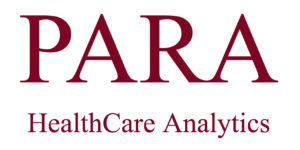

The DFW Hospital Council is posting blogs submitted by Associate Members. This post was provided by PARA Healthcare Analytics. For information, please contact Chris Wilson at chrisw@dfwhc.org.
Hospitals across the country are at risk of losing billions of dollars of reimbursement each year due to denied and incorrectly paid claims buried within the details of remittances from managed care payers. This contributes to substantial financial issues at a time when hospitals need every penny of reimbursement due to them.
The burden of identifying reversible denials and inaccurate short-payments falls solely on the shoulders of the facility business office. Eventual recovery of appropriate payment on short-paid claims requires the Revenue Cycle Management team to rework and resubmit claims and often medical records. This process takes precious time and resources, affects productivity, and directly impacts cash flow.
The ability to efficiently identify and prioritize claims which are not paid according to contract terms is essential in minimizing the impact on cash flow and the most valuable resource – time.
PARA’s powerful data analytics solutions provide visibility to hidden charge capture, denial management and managed care contract payor issues. Analyzing 835 remit data with managed care contract settlement terms and PARA’s proprietary charge capture analysis tool, allows the facility to identify opportunities to improve cash flow and maximize managed care reimbursement.
The PARA Solution
PARA HealthCare Analytics invites facilities to test the contribution that PARA offers by undergoing an initial 3-phase assessment process. The PARA web-based proprietary software tool, the PARA Data Editor (PDE), is utilized in each phase of the assessment.
1. Process managed care 835 remits and payer contract settlement terms using the PARA Data Editor (PDE);
2. Generate actual vs expected reimbursement reports using PDE Claim/RA/835 Remit – Settlement tab;
3. Review Assessment findings and prioritize issues identified.
The initial assessment will identify, at the payer contract level, where there are shortfalls and where reimbursement can be improved. The comprehensive report package generated from the assessment includes the following tabs:
• Inpatient claims;
• Hospital All Other – all OP claims;
• Profee – review professional fee claims;
• Negative – reversed payments or takebacks;
• Zero Paid – denied claims with no payment;
• Secondary Claims – claims where the payer is secondary, the primary payer paid the bulk;
• Claims paid as expected per the contract terms loaded in the PDE;
• Profee – claims paid as expected per contract terms.
This information is used by hospital managed care and billing staff to rebill (if necessary) and improve billing processes or charge master pricing.
For more information on our “free” assessment for DFW Hospital Council member hospitals, please contact:
Faye Openshaw, Account Executive
PARA HealthCare Analytics, Inc.
Phone: 888-999-3332, Ext. 239
Email: fopenshaw@para-hcfs.com.
PARA Healthcare Analytics – Managed Care: Reimbursement, Reconciliation and Recovery
05/24/2018